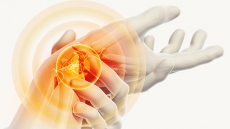Music is a universal language and a powerful tool that transcends boundaries.
We’ve all broke out in song, belting out popular choruses, or hummed along, tapping our toes when hearing our favourite tunes on the radio. We may even know the familiar feeling of drowning a heartbreak with the perfect sad song that can understand us like no one else can.
Music just has a way of helping us communicate our emotions, share our grief and lift our spirits. It has healing powers for every walk of life no matter where you’re listening or what you’re listening to. But it also comes in the medicinal form of music therapy – the skillful use of music to promote, maintain and restore an individual's physical and mental health.
Music Heals Charitable Foundation supports these music therapy programs across British Columbia and Canada by raising funds and awareness for the important role music plays in people’s health, mental health and overall lives. With a group of music enthusiasts, music lovers, and music therapists – the foundation supports a wide range of music therapy services to communities and increases access to music therapy for patients in children’s hospitals, senior’s homes, burn units, palliative care, AIDS & HIV programs, at-risk youth, habilitation and bereavement support.
To show just how much music therapy can improve lives, Music Heals has recently partnered with Surrey’s Health and Technology District and SFU on a new mental health research study. Using advanced neuroscience and functional brain imaging, the study will learn to understand the neuro-physiological impacts of music therapies on improved mental health. The partnership will also create a new Music Heals Lab at the Health and Technology District in Surrey.
Conducted by neuroscientists at SFU’s ImageTech Lab and music therapists at the Music Heals Lab, the study will monitor brain wave activities to evaluate the effects of music therapy on adults who have anxiety and depression following trauma, including adults with chronic mental health challenges due to post-concussive syndrome (PCS). The study will also monitor music therapy effects on mental and cognitive function of children who have experienced severe adverse events.
And in addition to facilitating the pilot study, the Music Heals Lab at the Health and Technology District will also provide music therapy programs for the people and programs who need it most.
There has already been numerous research studying the effects of music on our health. In fact, research has found that:
• MUSIC THERAPY CAN HELP REDUCE PAIN: In a study conducted with post-operative patients, music therapy was demonstrated to have a statistically significant effect on reducing post-operative pain, anxiety and distress behaviours (Bradt, 2010).
• MUSIC THERAPY CAN HELP IMPROVE COMMUNICATION SKILLS: In a study conducted with children on the autism spectrum, it was found that a child's repetitive speech (echolalic) utterances were reduced from 95 per cent to 10 per cent after music therapy sessions (Bruscia, 1982).
• MUSIC THERAPY CAN HELP IMPROVE MOTOR SKILLS: In a study conducted with individuals suffering from traumatic brain injuries, music therapy allowed clients to show significant improvements in the velocity, cadence, length and symmetry of their walking strides (Hurt et. al., 1998).
• MUSIC THERAPY CAN HELP REDUCE LENGTH OF HOSPITAL STAY: In a study conducted with premature infants in the neonatal intensive care unit, infants who received music therapy gained between 2-5 grams more than those who do not, allowing them to be discharged 8-12 days sooner (Standley, 2003)
Music can create transformational results for individuals of diverse ages and abilities and can benefit anyone with no potentially harmful effects. It can be used therapeutically for people who have physical, emotional, social, or cognitive deficits. Even those who are healthy can use music to relax, reduce stress, improve mood, or to accompany exercise.
Today, we are lucky to live in a world that acknowledges the existence of mental health struggles and has introduced continuous amounts of therapies, remedies and support. Music therapy is one of these evidence-based therapies that can work towards improving people’s quality of life. We hope this study will help create the best possible remedies and allow music to continue thriving as a powerful form of healing.
Laryssa is the Marketing & Communications Assistant for Music Heals Charitable Foundation. She’s a lover of music and storytelling, and lives for the days in which she gets to dabble in both.





